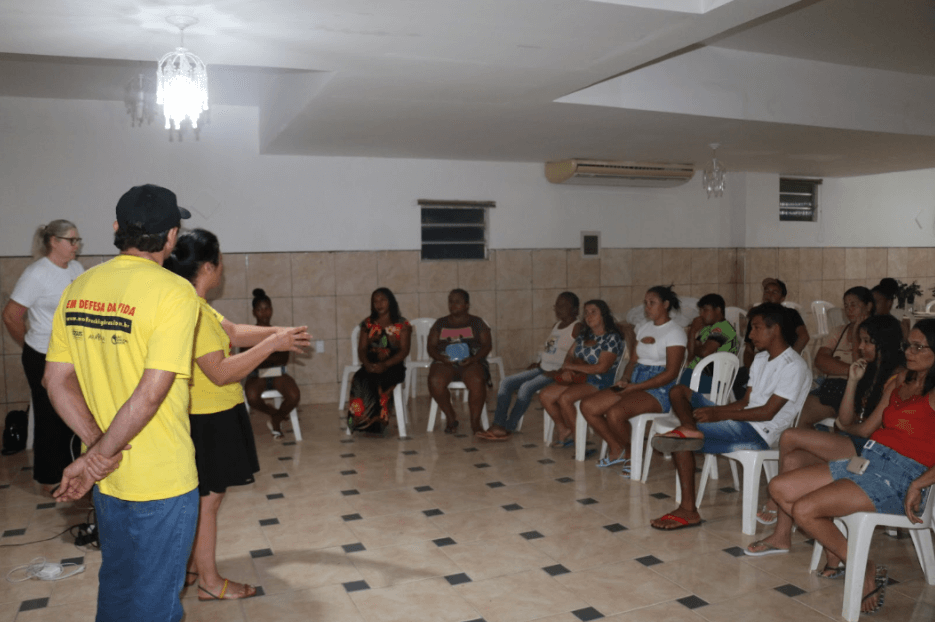No Fracking Brazil talked to several sectors of the city
What is fracking?
Fracking – also called hydraulic fracturing – is a process that involves injecting large volumes of water, chemicals and sand at high pressure into underground rock layers to release trapped natural gas. Despite being a technique already used in several countries, it is controversial because it causes environmental and ecological damage, including contamination of groundwater, release of greenhouse gases, induced earthquakes, etc.
On September 14, 2022, the São João dos Patos Municipal Secretariat for the Environment, in Maranhão, participated in an important training session on the theme “Fracking: a threat to the future of Brazil” . The speech was given by members of COESUS – Coalition No Fracking Brazil for Water and Life, a campaign by the Arayara International Institute. During the event, the technical responsible for the secretariat shared that she had a request filed with the city hall and forwarded to the SMMA, awaiting a technical opinion. The information provided during the training was crucial to support their considerations and, who knows, enable an unfavorable opinion regarding the use and occupation of the land requested for Fracking practices in the city.
In addition, another training course on Fracking was held for civil servants from the Union of Workers and Rural Workers in the municipality. Concern about this threat was evident, and participants questioned whether the mayor and the city council were aware of this situation. They undertook to pass on the information received to all cooperative members and associates, seeking to raise awareness and mobilize the community about the risks of the method.
Awareness also reached the Diocese of Caxias, where a virtual meeting with Bishop Dom Sebastião took place. During the meeting, the partnership of the Catholic Church with COESUS and ARAYARA was reaffirmed and the situation of Fracking both in the region and in the state of Maranhão was addressed. The Bishop expressed his support and made a special invitation for the team to participate in the Youth Pastoral event, as well as the Youth Pastoral Pilgrimage that took place on the 17th and 18th of the same month in the city of Carolina/MA.
Dalcio Costa speaking with young people from the Youth Pastoral Pilgrimage
The Youth Pastoral Pilgrimage is a Church event, which takes place every four years and attracts more than 20,000 young people. During this meeting, a space of about 30 minutes was granted for the representative of COESUS and ARAYARA, Dalcio Costa, to talk about Fracking and its impacts to the young people present.
The Bishop also invited COESUS to participate in the commemoration of the 30th anniversary of the Youth Pastoral and in the festivities of São Francisco de Assis, patron saint of the local church. As well as a meeting with the priests to discuss internal matters.
These actions highlight the importance of raising awareness and uniting different sectors of society in the fight against Fracking, with a view to protecting the environment and ensuring a safe future for all. COESUS remains committed to promoting awareness about the dangers of Fracking and seeking more sustainable alternatives for the development of Brazil.












